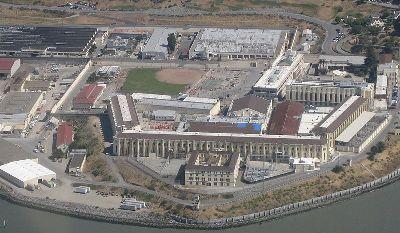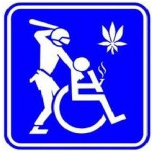Latest

Marijuana "Lowest Priority" Initiative Advances in Maine City
Indiana Lawmakers to Study Marijuana Legalization
Mississippi Tea Partiers Push Welfare Drug Testing Initiative
Italian Top Court Says Balcony Marijuana Grows Okay
Chicago Man Killed in Drug Bust Gone Bad
Montana Judge Blocks Restrictive Medical Marijuana Provisions

Federal Crack Prisoners Will Get Sentence Cuts [FEATURE]

Obama Administration Issues New Threats Against Medical Marijuana
[inline:wheelchair.png align=right]
After several ominous months, Obama's Dept. of Justice has issued a formal statement backing away from the President's pledge to respect state medical marijuana laws:
Latin Judges on Drugs and Human Rights -- Rome Declaration of 2011
DOCUMENT OF LATIN JUDGES
ON PUBLIC POLICY IN THE AREA OF DRUGS AND HUMAN RIGHTS
ROME DECLARATION OF 2011
Three years after the Document of judges, prosecutors, and defense counsel of Buenos Aires, published by the Latin American Commission on Drugs and Democracy, two years after the Declaration of Latin Judges in Oporto, both in line with the recently published report by the Global Commission on Drug Policy in June 2011 (made up of, among others, Paul Volcker, Ruth Dreifuss, Thorvald Stoltemberg, George P. Shultz, Kofi Annan, Maria Cattaudi, Richard Brenson, Carlos Fuentes, George Papandreou, and three former Latin American presidents), we once again insist that the “global war on drugs” has been a failure in view of the very serious consequences it has entailed for individuals and society worldwide.
- We endorse the document of the Global Commission, when it notes that criminal law reforms and the excessive use of emergency legislation have only increased the niches of corruption in the political and judicial realms, and especially in the forces of law order and crime prevention in the last 30 years, to the detriment of social-health policies and the guarantees that every government under the rule of law should uphold, in keeping with the various international commitments to which our countries are signatories in the areas of human, social, and health rights.
- The emergency legislation on drugs, as well as organized crime and money laundering (issues addressed in the 1988 Vienna Convention, respecting the domestic law of each signatory country) has been modified in the last 20 years in conventions and statutes that violate the principle of legality, creating laws of dubious constitutionality that violate the principles of pro hominedefense, the principles of harm and the proportionality of penalties for the most petty cases, saturating the judicial and prison system with small cases, distorting the function and role of the judiciary worldwide, and serving the interests of criminal organizations and corruption.
- Laws on drugs, organized crime, and money laundering associated with drugs, insofar as they do not affect clear legal interests, confuse an attempted crime with consummation of the crime, using inadequate legislative techniques with a proliferation of verbiage and concepts. In the last 30 years such laws were created for political reasons in many countries using foreign arguments, without any basis in established legal doctrine, without any empirical confirmation whatsoever, impacting on the health system and on the prison system, causing problems of overcrowding at high rates that countries such as Italy and Spain did not have, and that violate international commitments in this area.
- While we already knew that drug policy is a complex issue due to experiences with psychoactive drugs in the 1970s, that this worsened with cocaine bursting on the scene in the 1980s, and escalated in the 1990s, with lassitude in the controls of complex crimes that entail movements of proceeds from crimes to be transformed into legal money, today these concerns are all the more pertinent. We are facing a social and health emergency.
- The lack of preventive policies on socio-health and cultural issues, together with the lack of oversight of the state agencies involved, the lack of a clear criminal justice policy on the part of the state aimed at complex crime (bribery, corruption of public officials, tax evasion, flight and transfer of foreign exchange, contraband of arms, money laundering, and trafficking, among others), makes it clear that criminal justice reforms have only been and are merely a public relations ploy which in the best of cases not only did not resolve the serious problem of mounting demand but also did not reduce supply, and have become functional to large-scale movements of money worldwide that make it difficult to know precisely how much is generated by the illegal circuit of drug-trafficking or whether more white collar crime or corruption-related crime is being committed.
- There has been confusion in recent years between the role of security and defense and the proper role of police forces in searching for evidence to enable a judge to conduct a fair trial. The use in some countries of the Armed Forces in the Americas to pursue drug crimes opens up room for discretion that makes possible all type of violations of due process, human dignity, and the fundamental rights of persons that cannot be reconciled with the role these should be accorded in a democratic state, and are based on the by-now well-known national security doctrine.
- The lack of clear criminal policies towards trafficking and clear social and health prevention policies has been accompanied by the dissemination of mass media, which in propagandistic fashion clear the way for repression and statutory reforms which, on ending in failure, only serve to deteriorate institutions. Similarly there is abundant publicity encouraging consumption among youth.
- The application of an absolute prohibitionist approach to such a complex phenomenon, and which therefore should be flexible and open to all kinds of social, educational, health, and labor policies, without discriminating against any possible alternative, and that have yielded such positive results in Canada, Portugal, and Uruguay, should lead the highest-level political authorities to reflect on the seriousness of punishing petty consumption, an approach that only removes abusers or addicts from the health system, and the users of the system, and stigmatizes the first, deteriorating the function and role of the judge or prosecutor, leaving on a secondary plane administrative and family law, which has better tools than the last resort of the law.
- The area of international criminal justice cooperation and the implementation and signing of international conventions appear to ignore the notion that international law is also subject to the application of the guiding principles of human rights instruments such as the International Covenant on Economic, Social and Cultural Rights. There is no international law insulated from the basic axioms of human rights instruments; thus one should recall the relevance of the preamble of the United Nations Charter and all the precedents respectful of the principle of humanity and the role of some United Nations agencies.
- International instruments overlap, confuse drug trafficking with terrorism, are hardly operative when it comes to obtaining swift cooperation in relation to crimes of trafficking, laundering, or complex crimes, fail to include judges and prosecutors in their drafting; other such instruments are openly repudiated, which clearly obstructs the work of the courts and prosecutors in cases involving large-scale transnational and complex crimes not limited to drug trafficking, including corruption.
- The judiciary lacks the technological tools and resources for obtaining, in a timely manner and in proper form, information valuable for taking cognizance of suspicious operations, bribery, flight of foreign exchange, large-scale fraud, trafficking, and offenses that involve the political authorities such as corruption, or evasion of foreign exchange controls, demonstrating that mere legislative change is only a formality, lacking substance.
- Hence the need for legislative reform and harmonization that call for differentiated criminal justice responses based on the nature and seriousness of complex crimes and drug trafficking crimes (adjusted to the Vienna Convention), seeking to have the punishment be proportional to the wrong, and to the personal conditions of the participants, making possible, where called for, release from prison, the implementation of alternative measures, the imposition of conditional sentences, and the use of administrative law and civil code law.
- The strategy of the States should heed and consider the need for comprehensive assistance for drug users, and major non-specific prevention campaigns which address not only illegal substances but legal ones as well, and in particular that put in place policies for genuine inclusion in society and employment.
Rome, June 11, 2001
Signatures:
MartÃn Vázquez Acuña, Appellate Judge of Criminal Court No. 1 of the City of Buenos Aires. (Argentina).
Mónica Cuñarro, Prosecutor of the Argentine Republic and Professor at the Universidad de Buenos Aires (Argentina).
Graciela Julia Angriman, Judge of Criminal Court No. of Morón, Province of Buenos Aires (Argentina).
Rubens Roberto Casara, Judge of Rio Janeiro (Brazil).
José Henrique Rodrigues Torres, Appellate Judge of the Court of Justice of Sao Paulo (Brazil).
Antonio Cluny, Deputy Attorney General before the Court of Accounts of Portugal.
José Pedro Baranita, Alternative Prosecutor of Portugal.
Luigi Marini, Member of the Court of Cassation and President of Magistratura Democratica (Italy).
Piergiorgio Morosini, Judge of the Court of Palermo, Secretary General of Magistratura Democratica (Italy).
Carlo Renoldi, Judge of the Court of Cagliari, Executive Member of Magistratura Democratica (Italy).
Francesco Maisto, Presidente of the Court of Oversight of Bologna (Italy).
Guiseppe Cascini, Alternate Prosecutor of the Republic, Rome (Italy).
Tiziano Coccoluto, Judge of the Court of Latina, Secretary of Magistratura Democratica, Roma (Italy).
Stubborn Congressman Tries to Block Marijuana Legalization Bill
Barney Frank and Ron Paul's historic bill to end federal marijuana prohibition is generating a lot of excitement around the country, but in Washington D.C., it's already becoming another reminder of the arrogant drug war politics that have long obstructed the path to reform.
New Washington State Marijuana Legalization Initiative Filed
Feds vs. Deadheads in Missouri "Schwagstock" Forfeiture Battle [FEATURE]
This Week in History
Mexico Drug War Update
Montana Approves Medical Marijuana Initiative Petition
Dakta Green Jailed for New Zealand Cannabis Club
This Week's Corrupt Cops Stories

National Review Endorses Frank/Paul Marijuana Legalization Bill
[image:1 align:right]The conservative flagship magazine National Review has endorsed the recently
More States Go After Synthetic Drugs
Pagination
- First page
- Previous page
- …
- 317
- 318
- 319
- 320
- 321
- …
- Next page
- Last page












